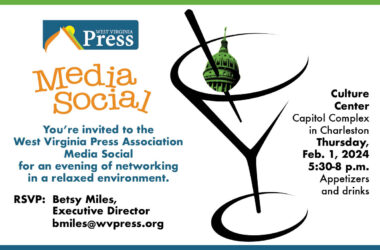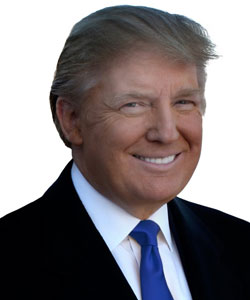CHARLESTON, W.Va. — Gary “Gig” Robinson, spokesman for the state Alcohol Beverage Control Administration (ABCA), is hesitant to offer an opinion on hypothetical examples of advertising language the agency will or will not permit. He recommends that proposed advertisements be submitted to the agency before they are published in order to be assured of the ABCA’s approval.
Robinson was asked what kind of turnaround time a business already licensed to sell alcoholic drinks can expect from the ABCA when it submits an advertisement for approval prior to publication.
FOR MORE INFORMATION ON MARKETING ALCOHOL IN WEST VIRGINIA AND AT FAIRS AND FESTIVALS, READ THIS RELATED STORY.
“Barring something unforeseen — in other words, a lot of things happening at once — we can generally get that back either that day or the next day. It’s pretty straight forward. We can look at it and consider it. Sometimes if somebody (emails it) I’ll pull a couple of people in and we’ll look at it, hash it out. It’s not like a process where you’re asking for a special-events license where there are fingerprints (required). We try to be very responsive to the public on those.”
Asked how to best reach him, Robinson said, “I’m here to serve the public” and he or the agency are accessible 24 hours a day, 7 days a week. Robinson’s direct phone number is 304 356-5506; his email address is [email protected]. Robinson said he checks his email even on weekends and when he is on vacation.
State law gives the ABCA 30 days to act on any license application. “Commissioner (Ronald) Moats is very aggressive and responsive, (realizing) these are places that are trying to provide businesses and jobs,” Robinson said.
Various facets of the industry employ almost 40,000 people in the state and “we are here to serve,” Robinson said. At the same time, “We want to make sure they aren’t felons and that they’re doing what needs to be done, that they are going to be following the laws, that they have all of the permits in place.
Although “we always try to respond quickly,” a fast turnaround on a license application may not be possible when it is necessary to obtain and process fingerprints or conduct a field inspection.
Robinson suggested special event organizers file their license applications and proposed advertisements long before an event to avoid uncertainty.
Robinson noted that “it’s a privilege to have a license” and businesses that sell liquor are selling “a commodity that is unique. You’re not selling soap. We want to balance protecting the public but allowing people who can legitimately drink or purchase to do so.”
Robinson said he has occasionally noticed a special event advertising alcoholic drinks but checked and discovered a license had not been issued.
The number of special event licenses increased about 10 percent from 2014 to 2015, he said.
Newspapers could provide a valuable service by alerting cities, nonprofits and other fair and festival organizers planning to sell beer or wine that they need to apply for a special events license at least 30 days in advance of their event.
Robinson said the trend in advertising fairs and festivals is to let it be known that alcohol will be available by using a generic name like “Blues, Brews & BBQ.”
He said such events typically don’t advertise brands. He said the ABCA would look closely at an event advertising a specific brand because fairs and festivals are required by law to invite all of the distributors in an area to sell at a special event. “We provide that information in the licensing packet,” including the names of the distributors, he said.
Fairs or festivals with names that don’t hint that beer or wine will be available could advertise that alcohol will be available to those who can legally consume along with a safety message like “drink responsibly,” but advertisers should make sure the disclaimer they use is not trademarked, he said.
Here are a few examples of what is and is not permitted:
Advertising price, brand, an image of the package and the size of the package is acceptable. Shawn Smith, the ABCA’s administrative service manager, said acceptable examples would be, “Jack Daniels, $2 a glass,” or “A Budweiser beer for $3.” The ABCA would be concerned if something in the ad induces people to over-consume or induces minors to consume.
Robinson said, “We’re looking at inducements and intemperance. In layman’s terms, ads should not induce people to over-consume, to drink in excess.” So slogans like “Drink ’til You Drown,” and “Party ’til You Pee” are unacceptable.
Advertisements can’t offer free giveaways. Therefore advertising “Ladies Drink Free” is unacceptable.
Advertisements can offer a discount on quantity purchases (for example, Kroger recently advertised “10% off Mix & Match Wine when you buy six 750 ml or larger bottles of wine”) but can’t promote intemperance. Also, beer and wine retailers, restaurants and bars must mark up products a minimum of 7 percent. Liquor stores must mark up products a minimum of 10 percent.
“Ideally, we want these advertisements to be coupled with some food,” Robinson said.
“Happy Hours” that last more than hour are acceptable, although “we want to encourage food service and not over-service of alcohol,” Robinson said. “We really have to look at the language in the advertisement. What are they saying? Are they encouraging you to come there and drink discounted quantities for four hours because if they are, people are going to reach over their blood-alcohol content where they can legally drive.
“You might see (a ‘Happy Hour’ that’s advertised from) 4 to 7. We look at it (this way): You might get someone there at the very beginning but some people get off work at 4, some get off at 5, some get off at 6. So they’re trying to capture that dinner crowd or to offset, to make up for the people who come out to eat.”
Robinson said he doesn’t think the ABCA has ever been approached by a distillery wanting to advertise a product package, package size or price. “I think they’re just trying to get that brand, that name recognition. Because they have so many different products (they seem to want to just say) this is who we are and where we are. These are our hours. Come visit us.
“If they’re going to get into something more specific about brand and price, we’re going to have to look at the type of license they have to be able to ascertain if that’s correct. I think it’s case by case. We’d need to see that ad.”
“We certainly recognize and want businesses to be successful,” Robinson said. “They are creating jobs and providing a service for the public. But at the same token, we want people who can legally drink to do so responsibly because it’s when that individual gets to the point of intoxication, whether they’re driving or not driving, that bad things start to happen.”
Websites worth reviewing:
* The West Virginia Alcohol Beverage Control Administration (www.abca.wv.gov); and
* The U.S. Treasury Department’s Alcohol and Tobacco Tax and Trade Bureau (www.ttb.gov)
National and state industry trade associations have published helpful advertising guidelines. They are:
* The Distilled Spirits Council of the U.S. (www.discus.org) and its U.S. Code of Responsible Practices;
* The Wine Institute (wine institute.org) and its Code of Advertising Standards; and
* The Beer Institute (www.beerinstitute.org) and its Advertising and Marketing Code.
At the state level, trade associations include:
* The West Virginia Spirits Council, a division of the West Virginia Retailers Association (www.wvretailers.com). The council is dedicated to addressing liquor industry issues on behalf of sprits retailers, brokers and distillers.
* The West Virginia Grape Growers Association (www.vinarium-usa.com/www/en/winery/winery/13883_west_virginia_grape_growers_association.html)
* The West Virginia Beer Wholesalers Association (wvbeer.org).
In March 2014 the Federal Trade Commission issued a report, “Self-regulation in the Alcohol Industry,” that provides insights into the U.S. alcohol market and alcohol marketing trends. It is published online at www.ftc.gov/system/files/documents/reports/self-regulation-alcohol-industry-report-federal-trade-commission/140320alcoholreport.pdf
The state law passed in March 2015 affecting brewers, Senate Bill 273, is online at http://www.legis.state.wv.us/Bill_Text_HTML/2015_SESSIONS/RS/pdf_bills/SB273%20SUB2%20enr%20PRINTED.pdf
The state law passed in March 2015 affecting distilleries, Senate Bill 574, is online at http://www.legis.state.wv.us/Bill_Text_HTML/2015_SESSIONS/RS/pdf_bills/sb574%20enr%20PRINTED.pdf
In addition to federal and state laws and regulations, Robinson pointed out that case law affects alcoholic beverage advertising.
The West Virginia State Bar’s Lawyer Referral Service does not list lawyers who are currently taking referrals in ABCA law. To find a lawyer who may be of assistance, one might contact a local distributor to see who they use as their attorney.
Although the 21st Amendment to the U.S. Constitution has been interpreted as giving the states absolute control over alcoholic beverages, the federal government still plays some role. For more information visit the U.S. Treasury Department’s Alcohol and Tobacco Tax and Trade Bureau website at www.ttb.gov. Regarding federal law, Robinson noted, “You cannot even possess the equipment to have a still. That becomes a criminal matter. It’s different if you’re doing wine or beer at your house for personal consumption. You’re allowed a small amount.”




